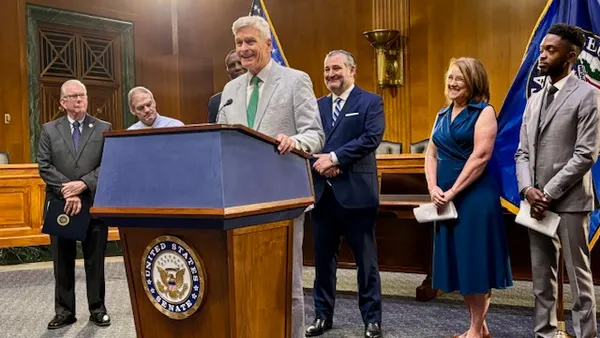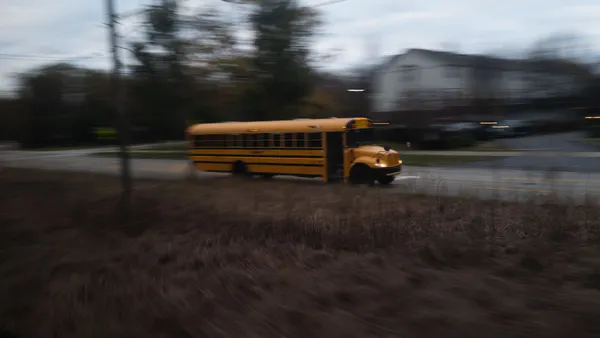Dive Brief:
-
Many states and charter management organizations have unspent federal funds they had committed to using for opening or expanding 1,570 charter schools over a three-year period, from 2013 to 2016, an investigation by the U.S. Department of Education Office of Inspector General has found.
-
According to the most recent data, the 94 Charter School Programs grant recipients had only reached 51% of that goal, which amounts to 798 schools opened or expanded. States opened or expanded less than half of the 1,076 schools they promised.
-
Of the 16 states and 36 organizations that received grants, 10 states and 19 organizations — or more than half — still had extensions or the option of an extension as of March 2, 2022. Collectively, that totals $111,880,345 in unspent funds for states and $63,941,042 in unexpended dollars for organizations.
Dive Insight:
The 16 state education agency CSP grant recipients in the investigation reported opening or expanding about 44% — 477 — of the 1,076 schools they originally proposed, while the 36 charter management organizations opened or expanded about 63% — 283 — of the 452 schools they committed to. The department defines a charter management organization, or CMO, as a nonprofit organization that operates or manages a network of charter schools linked by centralized support, operations, and oversight.
By comparison, nonstate education agency recipients reported opening 34 of their 38 proposed schools — or about 90% — and spent all $21,196,502 of the funding they were awarded. The department defines non-SEA recipients as a CSP grantee that was not funded under the CSP SEA or State Entity grant program, and can include charter school developers like public and private nonprofits.
Charter expansions and additions were much lower than initially proposed
The Inspector General report,which did not issue recommendations, chalks the findings up to a few possibilities, including:
- States might not have received as many grant applications as expected.
- State legislatures might have limited the number of new charter schools allowed to operate.
- Grant recipients might have had trouble getting charter school authorization.
"Because the only purpose of this finding is to provide information about whether CSP grant recipients opened or expanded the number of charter schools that they committed to opening or expanding, we are not making any recommendations," the report said.
The U.S. Office of Elementary and Secondary Education, which administers the CSP grants and tracks new and expanded charter schools, stated in its response that the "validity of the findings must be questioned" because the Inspector General didn't take later changes to grant applications into account in its report.
Mark Washington, deputy assistant secretary in OESE’s Office of Administration, said the office is "concerned" the audit doesn't take into consideration application amendments that "may have resulted in a reduced number of charter schools" recipients committed to opening or expanding.
During his 2020 campaign, President Joe Biden expressed opposition to for-profit charter schools.
In an interview with the Education Writers Association at the time, Stef Feldman, the campaign's national policy director, said Biden would "stop funding for charter schools that don't provide results."
In the same interview, Feldman said setting rules around charters would be a priority for the beginning of Biden's term. In line with that, the Biden administration recently proposed and finalized rules that garnered much backlash from pro-school choice advocates.
Though much less restrictive than the original proposals, the rules would, among other things, require charters seeking grant funds to demonstrate “sufficient demand for the charter school” under a new need analysis, which will assess the viability of and demand for a charter in a community.







 Dive Awards
Dive Awards





